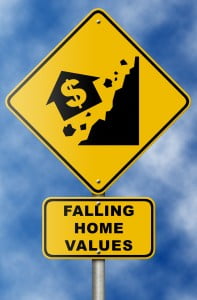
Dallas County officials have planned for an overall drop in property values this year of 8 percent to 9 percent when the tax roll is certified in July. Last year, property values fell by a little more than 3 percent – the largest drop since 1992.
If the county is unable to close the budget gap, commissioners might consider a tax rate increase. That would mean higher property taxes for some homeowners even if their values don’t change this year.
But even if the county decides to increase taxes, homes that go through foreclosure still don’t contribute to the tax base. And foreclosures are still the core cause of our reduced tax revenue and the reduced value of homes that are not in foreclosure. Unfortunately for communities around the country the foreclosure crisis is not only getting worse it is trickling into some of the more affluent areas creating urban rot and tax revenue shortages in some of the most unexpected places.
Affluent residential communities like Highland Park and University Park are experiencing foreclosure for the first time and home values in these areas are expected to drop for the first time in 20 years because of the foreclosures. These two communities are now swamped with vacant lots left empty because proposed mansions were never built. In addition to foreclosures, these empty lots conspire to decimate the county’s tax revenue base.